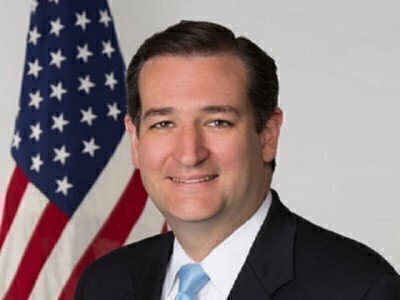Candidate Ted Cruz has won three recent court challenges about his Canadian birthplace and his ability to run for President. But not everyone is agreeing with those courts’ findings.
 On Wednesday, another challenge failed in Texas when U.S. District Judge Gray Miller dismissed a lawsuit from attorney Newton Schwartz, noting that Schwartz lacked standing. Other suits have failed in New York, Illinois and Florida when faced with similar procedural problems.
On Wednesday, another challenge failed in Texas when U.S. District Judge Gray Miller dismissed a lawsuit from attorney Newton Schwartz, noting that Schwartz lacked standing. Other suits have failed in New York, Illinois and Florida when faced with similar procedural problems.
And Tuesday, an administrative law judge in New Jersey ruled against a law professor who sued the Cruz campaign, claiming the professor’s own write-in presidential campaign had been harmed by Cruz’s candidacy.
Victor Williams, a Catholic University professor, and three New Jersey voters challenged the presence of Cruz on the June GOP primary ballot.
During arguments, Judge Jeff Masin agreed the questions about the constitutional status of Cruz’s candidacy weren’t far-fetched. “This is a serious constitutional issue, meaning it has been debated heavily (by legal scholars),” Masin said at the hearing. “This is not a frivolous issue.”
In fact, Masin found that the question had standing for a court to decide on its merits. But in the end, Masin ruled that the best prevailing argument was that Cruz, born in Canada to an American mother and Cuban-born father, could appear on New Jersey’s primary ballot.
"The more persuasive legal analysis is that such a child, born of a citizen-father, citizen-mother, or both, is indeed a 'natural born citizen' within the contemplation of the Constitution," Masin said.
"Absolute certainty as to this issue is only available to those who actually sat in Philadelphia and themselves thought on the issue,” Masin added. "The issue can never entirely be free of doubt, at least barring a definitive ruling of the United States Supreme Court.”
Masin referenced an opinion in Pennsylvania in March that came to a similar conclusion, where Commonwealth Court Senior Judge Dan Pellegrini rejected a challenge to Cruz’s eligibility from a Pittsburgh resident.
“Having extensively reviewed all articles cited in this opinion, as well as many others, this Court holds, consistent with the common law precedent and statutory history, that a 'natural born citizen' includes any person who is a United States citizen from birth. Accordingly, because he was a citizen of the United States from birth, Ted Cruz is eligible to serve as President of the United States,” Pellegrini wrote.
The Pennsylvania Supreme Court later upheld Pellegrini’s ruling.
The cases were the first of recent challenges to the Cruz campaign to get public merit opinions from judges
But everyone is siding with the judges. Williams, for example, plans to mount challenges in as many as nine states, including California, Montana, Nebraska, Oregon, South Dakota, Washington, and Wisconsin. Williams believes he has a better chance than other challengers because he can prove standing as a presidential candidate who would be harmed by Cruz’s presence on those ballots.
At issue in the debate is the Constitution’s Natural Born Citizenship Clause, which states that “no person except a natural born Citizen, or a Citizen of the United States, at the time of the Adoption of this Constitution, shall be eligible to the Office of President.”
One interpretation is that the 1790 Naturalization Act provided that “children of citizens of the United States, that may be born beyond the sea, or out of the limits of the United States, shall be considered as natural-born citizens.”
However, several scholars, such as Harvard’s Laurence Tribe, believe the Supreme Court has never addressed the situation.
Legislative attorney Jack Maskell, writing for the Congressional Research Service in 2011, found that “the weight of more recent federal cases, as well as the majority of scholarship on the subject, also indicates that the term ‘natural born citizen’ would most likely include, as well as native born citizens, those born abroad to U.S. citizen-parents, at least one of whom had previously resided in the United States, or those born abroad to one U.S. citizen parent who, prior to the birth, had met the requirements of federal law for physical presence in the country.”
To be sure, the debate over Natural Born Citizenship Clause will continue through the 2016 primary cycle, and possibly further. A definitive answer may not come until a lawsuit made its way to the Supreme Court (if the Court decided someone had standing to sue) or a constitutional amendment clarified the issue.






